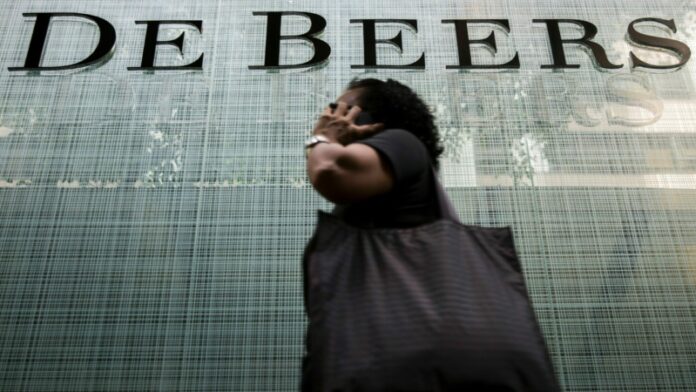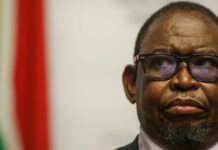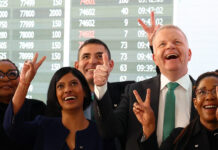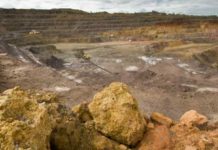
ANGLO American said it was negotiating with the Botswana government to increase its 15% stake in De Beers ahead of selling the business, which remained the group’s preferred route of divestment.
Speaking at the firm’s interim results presentation on Thursday, Anglo CEO Duncan Wanblad said Botswana would not be offered a discount for an increased stake in De Beers over which the southern African nation has a pre-emptive right. Instead it would pay in line with the value agreed with third party buyers, currently being assessed.
Notwithstanding the prolonged underperformance of the diamond market, a trade sale remained Anglo’s number one divestment strategy with plans for a IPO primarily on one of the London, New York or Johannesburg stock exchanges a second option, he said.
“Certainly I still believe that our preferred exit route is a trade sale, and certainly, we have a fair amount of very credible interest in the business,” said Wanblad.
Analysts have warned it would be a mistake to divest of De Beers at a deep discount.
“It’s a strong business and it consists of some fantastic assets and despite the current turmoil in diamond markets – which we believe to be a real bottom of cycle – I think it’s set up to do very well,” he added. “We are now in a formal process with third party buyers.”
“We are also engaging with the government of Botswana on its interest in increasing their stake in the business. And so in the next little while, so in the next month or so, we’ll be moving into what is effectively the second round of a sales process.
“We obviously would be looking to do this on fully commercial terms with the government of Botswana,” said Wanblad.
Botswana’s mines minister, Bogolo Kenewendo, told the Financial Times last week that the country was interested in converting its stake into complete ownership of what she called a “strategic national asset”.
However, Kieron Hodgson, an analyst at London-based Peel Hunt, said Botswana’s acquisition of De Beers “seems far-fetched and improbable” given the government’s fiscal constraints. Botswana’s foreign currency reserves have fallen to $3.5bn from $4.8bn a year earlier, said the Financial Times.
There have even been calls for Anglo to hold the sale process until diamond prices revive. Paul Zimnisky, an independent diamond analyst, said the UK-listed miner could “afford to wait a couple more years in order to get a fair price”, especially as it had already sold its metallurgical coal and nickel assets for good value.
De Beers inventory reduced $500m
Wanblad presides over a complicated set of interim numbers (ended June 30) owing to the changing shape of Anglo’s portfolio. It has sold some of its metallurgical coal mines, as well as the nickel business and in May demerged Valterra while retaining a 19.9% stake.
Including these discontinued assets, Anglo announced a group taxed profit of only $175m or 15 USc/share. This is after taking into account net profit from continuing assets – copper and iron ore as well as manganese and diamonds – of $387m and a loss of $212m from the the discontinued assets.
Subsequently, Anglo paid a $100m interim dividend, equal to seven US cents per share dividend. This is in terms of its 40% payout policy and is heavily down on last year’s $700m payout.
Key among the underperformance of continuing operations is De Beers. Its $189m loss for the six months exceeded Visible Alpha consensus of -$130m.
It was partly owing to a reduction in diamond stocks from $2.3bn worth of goods at the end of 2024 to about $1.8bn, accounting for the majority of Anglo’s $600m in working capital release during the period. The inventory is not all unsold rough diamonds but also includes industrial and retail stocks.
The upshot, however, is there would be an upgrade to De Beers’ carrying value from the $4bn at year-end. “When we look at the rough diamond inventory, that’s pretty much getting down to about the levels that we would consider normal for De Beers,” said John Heasley, Anglo CFO of De Beers’ inventory levels.










